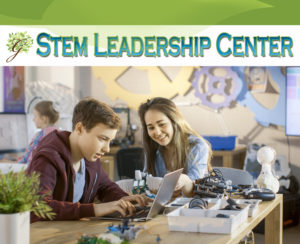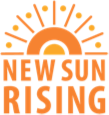Elections, throughout the United States, are next Tuesday, November 8. Last year, 37.8% of voters went through the time and effort to cast a ballot. How many could tell you about the candidates whose names they placed a check beside?
It is hard work to get ready to go to the voting booth. To vote in an informed way requires a herculean effort and application of critical thinking skills. Apathy, according to Dave Meslin in his TED talk, doesn’t exist. What does exist is a political culture that fails to encourage participation. Dave looked at a zoning application change notice that appeared in a newspaper; impossible to read, the address not listed until halfway down, and the instructions to get involved buried in 10-point font at the bottom. He compares it to the way Nike advertises, asking a hypothetical if techniques were reversed.
He continues with some wonderful ideas, and I would like to add yet another. I would like to suggest that we encourage our teens (particularly those of us who are teaching history, civic, or running for office) to take on the project of making information available to the voting community.
For example, in my own community, we elect members to the Borough Council, to the local school board, and our County and our State. I propose that a teenager could, as a graduation, class, of personal project, research those candidates and post to Wikipedia the results of their research. Wikipedia already has each Borough, School District, County and State on their site (pause here and go look for yours!). A student could go in, create a new section on that already existing page, and list the candidates for the upcoming election.
Fall 2011 Council Candidates
| Name | Party | Yrs. In Borough | Education | Experience |
| Polly Tician | Democrat | 22 | BA Business | 22 years Army, small business owner |
| CyrilServant | Libertarian | 6 | MS Engineering | Member of Lions club, Church elder, |
Wikipedia is all about neutrality, refusing to post or quickly disabling information that is slanderous or objectionable. They are rules to creating a post that would prevent much abuse. The teenager who takes on this project would need to visit the county board of elections office to get the list of candidates and their contact information (about 2 months before elections). The student could then conduct a survey asking for background information, providing a hyperlink to any other web site that the candidate wanted linked to. Fact checking and critical thinking would be part of the process, as well as an attempt to leave each entry impartial and limited to the same size entry for each candidate. Sites have been attempted, such as Wiki-vote, but the structure and page are already available on Wikipedia.
Sure, there is a risk. The student would have to monitor the site (which can be set up by an email notification when changes happen) for some politically incorrect candidate who post slurs about their opponents, or exaggerated claims about themselves. Wikipedia already has the structure, one that emphasizes neutrality, to have those comments removed and that user blocked. Experience with collaborative projects has proven far more successful than originally projected. To learn more, view the TED videos of the Wikipedia founder Jimmy Wales and Jonathan Zittrain (The Web as random acts of kindness).
The structure means I need to visit several sites for my voting information: the borough, the school district Wikipedia site, the County site, the State site. I can’t imagine one student or one class could get them all done, but to even have one would mean I was walking into the voting booth more informed.
I sat down with Jeremy Angus, Executive Director of the Ambridge Area Chamber of Commerce, Ambridge Area School Board candidate, and Duquesne University Business and Marketing student. He had some interesting reactions to the proposal and some ideas to make it into a add depth and substance to the project.
E.C. Why is important to get this information out?
J.A. One of the biggest problems issues facing American politics is this stereotype persona that every politician is out for themselves and not working in best interest of the person voting. A project like this has a chance to show the honest side of politicians and give you a glimpse at them as people and potential leaders.
E.C. Should a teenager or high school classroom look into the national candidates or local politicians.
J.A. Local politics – they are the foundation of the federal. If something is not happening on a local level it won’t rise to the top. Even a state rep can’t filter out all the local issues. In my opinion, local politics are the most important level of politics. Your state representative is one of the final positions to stay directly connected to your local district and grassroots concerns.
E.C. What do you see as the greatest benefit to this proposal?
J.A. Younger people are more engaged when they are forming their own opinions and their own path. The Obama campaign was an amazing moment in political advocacy, the way they were able to get young people involved through social media. In politics we have to focus on the senior citizen, the veteran, and we can become so focused that we dismiss the younger generation. My own experience of being 18 years old, at the time of the Chamber takeover, and being called “too young” was hard. It is hard to try to offer advice to a 50 year old business owner. Without intergeneration communication, the younger people can feel, like I did, that the biggest roadblock was a lack of opportunity.
E.C. How would you like to see a teenager tackle this project?
J.A. I would prefer an interview and to connect to the student. It would be good if the student opened a free Google website to link to and posted extended interviews, even audio files. They should ask candidates to inform them of the most important issues and watch the candidates reactions to hard questions. For example, if they interviewed a candidate for school board the might ask about hometown, residency, whether they are a graduate of the school, what year they graduated in, occupation, prior political experience, boards they serve on, organizations they belong to, if they are related to a public school employee. They can ask “issue” questions such as “How does candidate feel about public/charter/cyber funding? The districts anti-bullying policy? Teacher’s unions? Standardized Testing?” Information on the Wikipedia site should include a link on how to register as a voter.
E.C. Jeremy, thank you for all your time. Any final comments?
J.A. I really suggest that any teen (or adult) that decides to undertake a project like this interview the candidate in person. There is so much you can tell talking to them in person. I hope they take the chance to get involved!
Grow a Generation is about giving parents the tools to prepare their kids for the 21st century with the skills of innovation, collaboration, emotional intelligence, resilience, leadership, vision and critical thinking. Project based learning, particularly projects that involve our students in the real world and help them bring about real change has, in education research, arisen as the best practice for learning these skills. What do you think? Do you have a child that wants to prepare for the spring primaries? I would love to coauthor a project workbook with them about the process.





